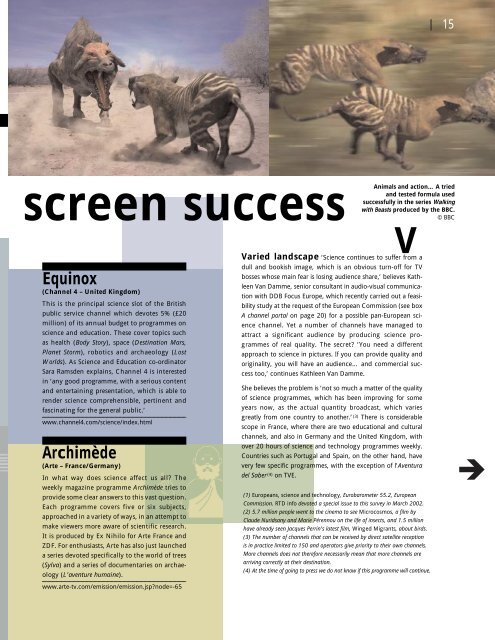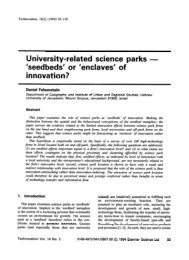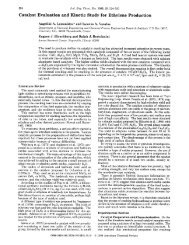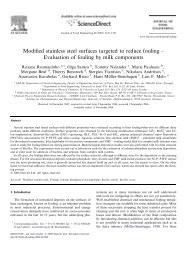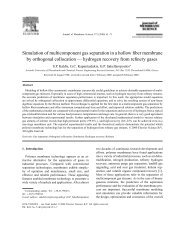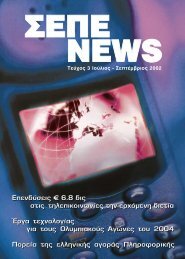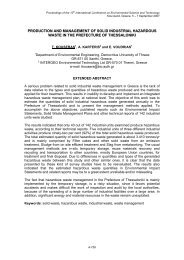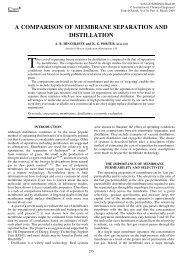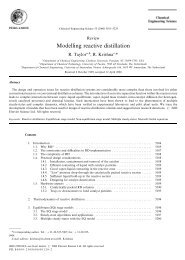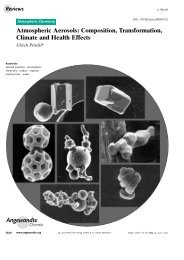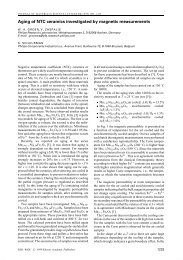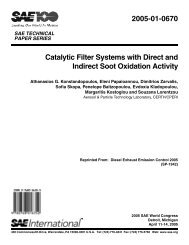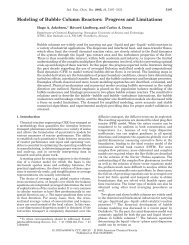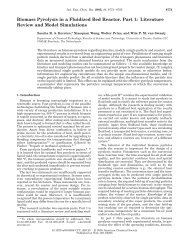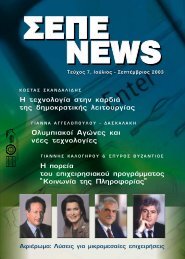RTD info - European Commission - Europa
RTD info - European Commission - Europa
RTD info - European Commission - Europa
You also want an ePaper? Increase the reach of your titles
YUMPU automatically turns print PDFs into web optimized ePapers that Google loves.
15<br />
screen success<br />
Equinox<br />
(Channel 4 – United Kingdom)<br />
This is the principal science slot of the British<br />
public service channel which devotes 5% (£20<br />
million) of its annual budget to programmes on<br />
science and education. These cover topics such<br />
as health (Body Story), space (Destination Mars,<br />
Planet Storm), robotics and archaeology (Lost<br />
Worlds). As Science and Education co-ordinator<br />
Sara Ramsden explains, Channel 4 is interested<br />
in ‘any good programme, with a serious content<br />
and entertaining presentation, which is able to<br />
render science comprehensible, pertinent and<br />
fascinating for the general public.’<br />
www.channel4.com/science/index.html<br />
Archimède<br />
(Arte – France/Germany)<br />
In what way does science affect us all? The<br />
weekly magazine programme Archimède tries to<br />
provide some clear answers to this vast question.<br />
Each programme covers five or six subjects,<br />
approached in a variety of ways, in an attempt to<br />
make viewers more aware of scientific research.<br />
It is produced by Ex Nihilo for Arte France and<br />
ZDF. For enthusiasts, Arte has also just launched<br />
a series devoted specifically to the world of trees<br />
(Sylva) and a series of documentaries on archaeology<br />
(L’aventure humaine).<br />
www.arte-tv.com/emission/emission.jsp?node=-65<br />
Animals and action… A tried<br />
and tested formula used<br />
successfully in the series Walking<br />
with Beasts produced by the BBC.<br />
© BBC<br />
V<br />
Varied landscape ‘Science continues to suffer from a<br />
dull and bookish image, which is an obvious turn-off for TV<br />
bosses whose main fear is losing audience share,’ believes Kathleen<br />
Van Damme, senior consultant in audio-visual communication<br />
with DDB Focus Europe, which recently carried out a feasibility<br />
study at the request of the <strong>European</strong> <strong>Commission</strong> (see box<br />
A channel portal on page 20) for a possible pan-<strong>European</strong> science<br />
channel. Yet a number of channels have managed to<br />
attract a significant audience by producing science programmes<br />
of real quality. The secret? ‘You need a different<br />
approach to science in pictures. If you can provide quality and<br />
originality, you will have an audience… and commercial success<br />
too,’ continues Kathleen Van Damme.<br />
She believes the problem is ‘not so much a matter of the quality<br />
of science programmes, which has been improving for some<br />
years now, as the actual quantity broadcast, which varies<br />
greatly from one country to another.’ (3) There is considerable<br />
scope in France, where there are two educational and cultural<br />
channels, and also in Germany and the United Kingdom, with<br />
over 20 hours of science and technology programmes weekly.<br />
Countries such as Portugal and Spain, on the other hand, have<br />
very few specific programmes, with the exception of l’Aventura<br />
del Saber (4) on TVE.<br />
(1) <strong>European</strong>s, science and technology, Eurobarometer 55.2, <strong>European</strong><br />
<strong>Commission</strong>. <strong>RTD</strong> <strong>info</strong> devoted a special issue to this survey in March 2002.<br />
(2) 5.7 million people went to the cinema to see Microcosmos, a film by<br />
Claude Nuridsany and Marie Pérennou on the life of insects, and 1.5 million<br />
have already seen Jacques Perrin’s latest film, Winged Migrants, about birds.<br />
(3) The number of channels that can be received by direct satellite reception<br />
is in practice limited to 150 and operators give priority to their own channels.<br />
More channels does not therefore necessarily mean that more channels are<br />
arriving correctly at their destination.<br />
(4) At the time of going to press we do not know if this programme will continue.<br />
"


